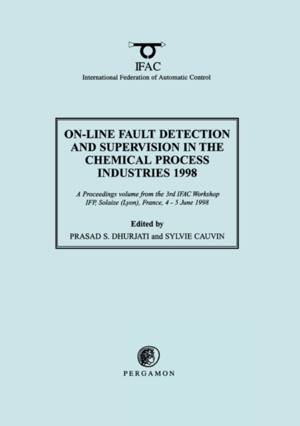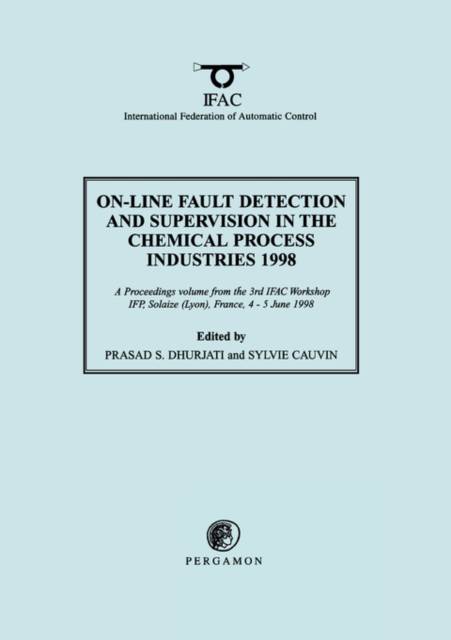
- Retrait gratuit dans votre magasin Club
- 7.000.000 titres dans notre catalogue
- Payer en toute sécurité
- Toujours un magasin près de chez vous
- Retrait gratuit dans votre magasin Club
- 7.000.0000 titres dans notre catalogue
- Payer en toute sécurité
- Toujours un magasin près de chez vous
On-Line Fault Detection and Supervision in the Chemical Process Industries 1998
P S Dhurjati, Sylvie CauvinDescription
There are several trends that make the topic of this workshop especially relevant in today's world. The first is the tremendous advances made in automation and information technology that can potentially bring in an ever-increasing amount of information on to computer screens in the operating room of a plant. Avoiding problems of information overload and converting plant data to "on-line useful knowledge" is a key challenge. In some respects, one can draw parallels here to biological evolution where, over billions of years, human beings have evolved "mental models" to interpret the huge amount of information received through their senses. In the absence of the time advantage that evolution has had, we have to rely on methodologies such as those presented in this workshop to provide assistance to operators and engineers in interpreting plant information.
A second trend that makes this field relevant in today's world is the increasing emphasis on environment and safety. Community activism and accidents such as those in Bhopal, India have caused media spotlights to be turned on the smallest of toxic releases or loss of life due to chemical accidents. The negative publicity generated by such events as well as the need to maintain the image of an environmentally conscious company make industry more sensitive to the issues of early detection of faults.
The third trend that makes this field very relevant is that of the globalization of the world economy. Increasing globalization of the chemical process industry puts pressure on economic competitiveness and higher productivity. This implies reduced down-time due to faults, quick and flexible response of production to supply and demand changes, increasing reliance on automation and reduced personnel.
Spécifications
Parties prenantes
- Auteur(s) :
- Editeur:
Contenu
- Nombre de pages :
- 420
- Langue:
- Anglais
- Collection :
Caractéristiques
- EAN:
- 9780080432335
- Date de parution :
- 20-10-98
- Format:
- Livre broché
- Format numérique:
- Trade paperback (VS)
- Dimensions :
- 210 mm x 297 mm
- Poids :
- 1002 g

Les avis
Nous publions uniquement les avis qui respectent les conditions requises. Consultez nos conditions pour les avis.






